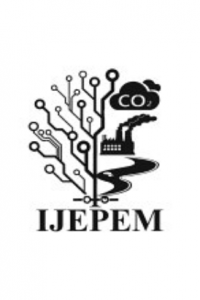Tagore’s Philosophy of Man and Nature: A Study in Environmental Ethics
Tagore’s Philosophy of Man and Nature: A Study in Environmental Ethics
The objective of this study is to critically examine Tagore's conceptualization of the interplay between humanity and the environment, as well as the broader cosmos. The primary objective of this analysis is to elucidate how Tagore's poetic and philosophical comprehension of the interconnectedness between humanity and the natural world, as well as the person and the cosmos, enables him to cultivate a profound perspective on the world. This particular worldview has a considerable capacity to provide an alternate vantage point for understanding nature and the role of humanity within the cosmos. I will thoroughly examine the underlying conceptual framework that supports his theories centred on the relationship between man and nature. The chapter will conclude by alluding to the view that Tagore's philosophy of human nature offers a valuable framework for contemplating his ideas on aesthetics and ethics
Keywords:
Environmental Ethics, Rabindranath Tagore, Nature, Ethics Aesthetics,
___
- Asad, T. 2003. Formations of the secular: Christianity, Islam, modernity. Stanford University Press.
- Atkinson, D. W. 1984. Rabindranath Tagore: The poet and the absolute. Studies in Religion/Sciences Religieuses, 13(2), 193-205.
- Bhattacharya, K. (2013). Rabindranath Tagore: Adventure of ideas and innovative practices in education. Springer Science & Business Media.
- Bostrom, N. 2005. A history of transhumanist thought. Journal of evolution and technology, 14(1).
- Chakraborty, P. 2019. Tagore’s Views on Nature: Some Reflections. Think India Journal, 22(35), 661-666.
- Douzinas, C. 2007. Human rights and empire: the political philosophy of cosmopolitanism. Routledge.
- Eliade, M. 2009. Yoga: Immortality and freedom (Vol. 94). Princeton University Press.
- Fassin, D. 2008. Beyond good and evil? Questioning the anthropological discomfort with morals. Anthropological theory, 8(4), 333-344.
- French, R. 2005. Ancient natural history: histories of nature. Routledge.
- Ghose, P. (Ed.). 2016. Einstein, Tagore and the nature of reality. Routledge.
- Gupta, K. S. 2016. The Philosophy of Rabindranath Tagore. Routledge.
- Ignatius, I. P., & Umotong, I. D. 2022. Decay in Educational System: The Nigerian Perspective. Journal of Graduate Education Researc h, 3, 10.
- Karasinski-Sroka, M. 2021. When the Poison Is the Cure—Healing and Embodiment in Contemporary Śrīvidyā Tantra of the Lalitāmbikā Temple. Religions, 12(8), 607.
- Lal, Basant Kumar. Contemporary Indian Philosophy. Motilal Banarsidass Publ., 1978.
- Minteer, B. A., & Manning, R. E. 2005. An appraisal of the critique of anthropocentrism and three lesser known themes in Lynn White’s “The Historical Roots of our Ecologic Crisis”. Organization & Environment, 18(2), 163-176.
- Oshie, M. A., & Ushie, C. 2021. Conceptualising public relations’ strategies as a major tool in managing communication in organisations: A study of Niger Mills Plc, Calabar, Cross River State. LWATI: A Journal of Contemporary Research, 18(3), 116-128.
- Rani, S. 2013. Tagore and science: A critical review. Asian Journal of Multidimensional Research (AJMR), 2(1), 12-16.
- Routley, R. 1973. Is there a need for a new, an environmental ethic. In Proceedings of the XVth world congress of philosophy, 1, 205-210.
- Santayana, G. 1955. Scepticism and animal faith: Introduction to a system of philosophy. Courier Corporation.
- Sorkhabi, R. 2005. Einstein and the Indian minds: Tagore, Gandhi and Nehru. Current Science, 88(7), 1187-1191.
- Thompson, E. J. 1926. Rabindranath Tagore: Poet & Dramatist. London, Milford.
- Udofia, C. A. 2023. Henry David Thoreau and the Philosophy of Civil Disobedience as a Non-Catalytic Cum Catalytic Model for Conflict Resolution. Stallion Journal for Multidisciplinary Associated Research Studies, 2(3), 1-4.
- Udofia, C. A. 2023. Tolstoy’s Philosophy of Non-Violence: A Discourse. Integrated Journal for Research in Arts and Humanities, 3(3), 35-38.
- Umotong, I. D. 2008. Terrorism: An epostemic solution. Sophia: An African Journal of Philosophy, 11(1).
- Umotong, I. D. 2013. Aesthetic Controversy in the works of Leonardo Da Vinci's Self Portrait and the monaliza. Leajon: An Academic Journal Of Interdisciplinary Studies, 2,
- Umotong, I. D. 2014. The Cradle of Western Philosophy. Aksu Journal of History and Global Studies, 1.
- Umotong, I. D. 2020. Ethnic Politics in Nation Building: The African Perspective. Ifiok: Journal of Interdisciplinary Studies, 5(1).
- Umotong, I. D. 2020. The Role of African Logic in the Developmental Dynamics of Modern African States. Akwa Ibom State University Journal of Arts (AKSUJA), 5.
- Umotong, I. D. 2021. Humanism and Terrorism: An Epistemic Overview. The International Journal of Humanities & Social Studies, 9(5).
- Umotong, I., & Udofia, C. 2021. Critical Reasoning. Robertminder International Limited.
- White Jr, L. 1967. The historical roots of our ecologic crisis. Science, 155(3767), 1203-1207.
- Yayın Aralığı: Yılda 2 Sayı
- Başlangıç: 2018
- Yayıncı: Yasin Akın AYTURAN
Sayıdaki Diğer Makaleler
Tagore’s Philosophy of Man and Nature: A Study in Environmental Ethics
Respecting Nature: A Study to Environmental Ethics
The implications of Kantian Ethics for Non-rational Nature/Beings: A Study in Environmental Ethics
Evaluation of Tree Species Composition and Density in Bisaula Forest Reserve Taraba State, Nigeria.
